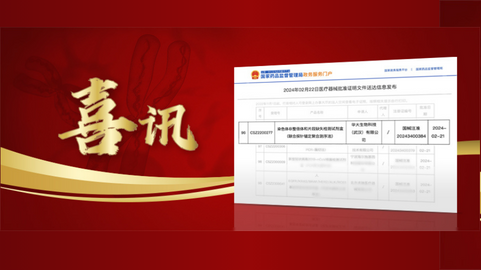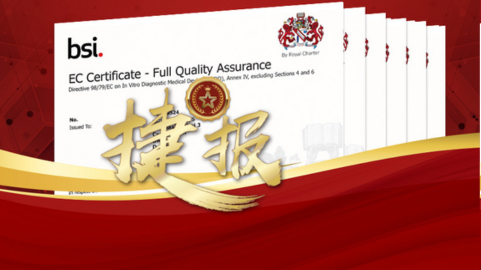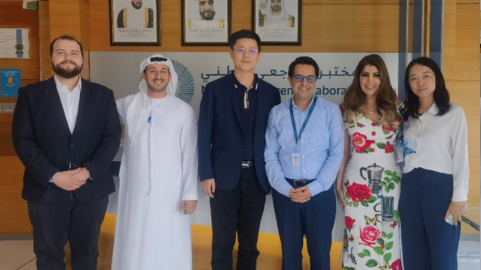china daily | 华大基因ceo赵立见:共筑“健康丝绸之路”,促进“一带一路”国家健康卫生全面提升
2023-11-21
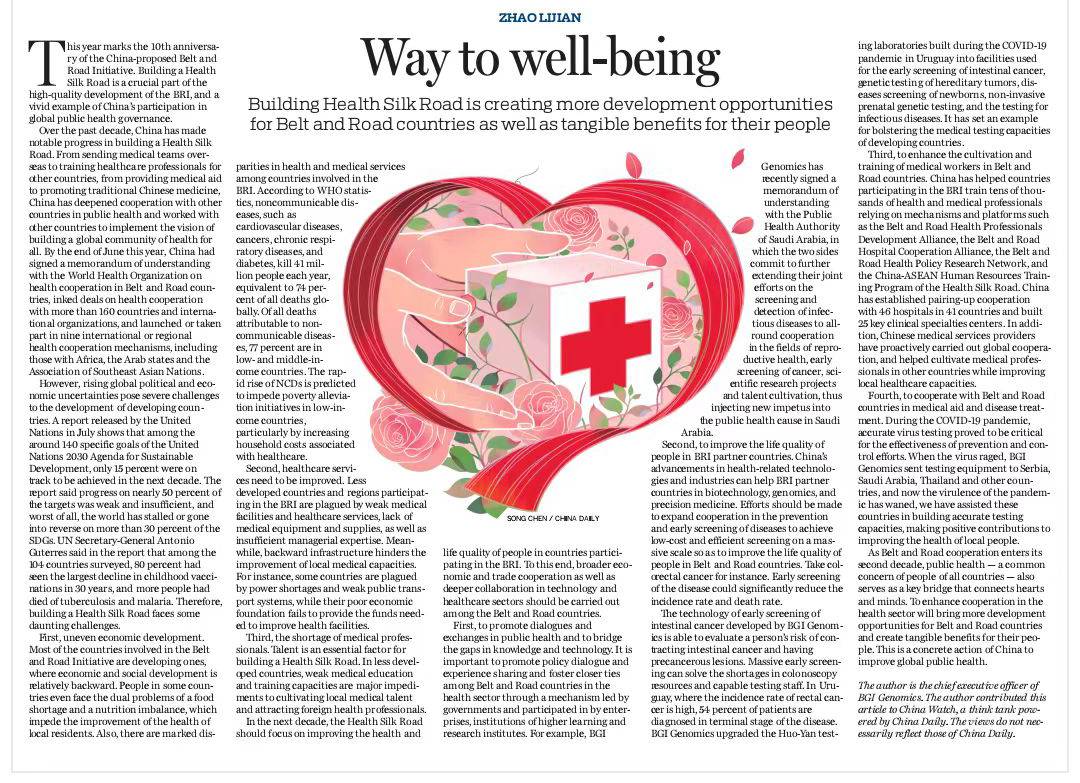
china daily报纸刊登华大基因ceo赵立见署名英文文章

/作者:华大基因ceo 赵立见 /
导读:building health silk road is creating more development opportunities for belt and road countries as well as tangible benefits for their people.
*英文文章刊发在中国日报全球版china daily global edition,中文文章发布在中国日报网(chinadaily.com.cn)。中英非对照翻译版本。
this year marks the 10th anniversary of the china-proposed belt and road initiative. building a health silk road is a crucial part of the high-quality development of the bri, and a vivid example of china's participation in global public health governance.
2023年是“一带一路”倡议提出的十周年,“健康丝绸之路”建设作为其高质量发展的重要组成部分,不仅是中国践行“人类命运共同体”理念的实际行动,也是中国积极参与全球公共卫生治理的重大实践。
over the past decade, china has made notable progress in building a health silk road. from sending medical teams overseas to training healthcare professionals for other countries, from providing medical aid to promoting traditional chinese medicine, china has deepened cooperation with other countries in public health and worked with other countries to implement the vision of building a global community of health for all. by the end of june this year, china had signed a memorandum of understanding with the world health organization on health cooperation in belt and road countries, inked deals on health cooperation with more than 160 countries and international organizations, and launched or taken part in nine international or regional health cooperation mechanisms, including those with africa, the arab states and the association of southeast asian nations.
过去十年,中国在推动“健康丝绸之路”建设方面取得了显著成就。从派遣医疗队、实施人才培养,开展卫生援助、推广中医药,中国不断深化同各国在卫生健康领域交流合作,推动构建人类卫生健康共同体,建立紧密的卫生凯发k8一触即发的合作伙伴关系。截至2023年6月底,中国已与世界卫生组织签署《关于“一带一路”卫生领域合作的谅解备忘录》,与160多个国家和国际组织签署卫生合作协议,发起和参与中国—非洲国家、中国—阿拉伯国家、中国—东盟卫生合作等9个国际和区域卫生合作机制。
however, rising global political and economic uncertainties pose severe challenges to the development of developing countries. a report released by the united nations in july shows that among the around 140 specific goals of the united nations 2030 agenda for sustainable development, only 15 percent were on track to be achieved in the next decade. the report said progress on nearly 50 percent of the targets was weak and insufficient, and worst of all, the world has stalled or gone into reverse on more than 30 percent of the sdgs. un secretary-general antonio guterres said in the report that among the 104 countries surveyed, 80 percent had seen the largest decline in childhood vaccinations in 30 years, and more people had died of tuberculosis and malaria. therefore, building a health silk road faces some daunting challenges.
然而,全球政治经济不确定性加大,发展中国家面临严峻的发展挑战,联合国在今年7月发布的报告中表示,《2030年可持续发展议程》难以实现,在约140个具体目标中,只有15%有望在最近10年内实现,近一半的目标偏离轨道,30%的目标根本没有任何进展。联合国秘书长古特雷斯在报告中表示,在所研究的104个国家中,80%国家的儿童疫苗接种率出现了三十年来最大的下降,结核病和疟疾死亡人数增加。由此,推进健康一带一路建设同样面临着巨大挑战。
first, uneven economic development. most of the countries involved in the bri are developing ones, where economic and social development is relatively backward. people in some countries even face the dual problems of a food shortage and a nutrition imbalance, which impede the improvement of the health of local residents. also, there are marked disparities in health and medical services among countries involved in the bri. according to who statistics, noncommunicable diseases, such as cardiovascular diseases, cancers, chronic respiratory diseases, and diabetes, kill 41 million people each year, equivalent to 74 percent of all deaths globally. of all deaths attributable to noncommunicable diseases, 77 percent are in low- and middle-income countries. the rapid rise of ncds is predicted to impede poverty alleviation initiatives in low-income countries, particularly by increasing household costs associated with healthcare.
1. 经济水平不均:“一带一路”沿线国家多是发展中国家,经济社会发展水平相对较低,一些国家的民众甚至面临粮食短缺和营养严重失衡的问题,这必然会制约了当地民众健康水平的整体提升。受此影响,“一带一路”共建国家的卫生健康水平存在显著差异,根据世界卫生组织数据,心血管疾病、癌症、慢性呼吸道疾病、糖尿病等非传染性疾病每年造成4100万人死亡,相当于全球所有死亡人数的74%,而其中77%发生在低收入和中等收入国家。而这些疾病快速上升将进一步阻碍低收入国家的减贫行动,尤其会增加家庭的卫生保健相关费用。
second, healthcare services need to be improved. less developed countries and regions participating in the bri are plagued by weak medical facilities and healthcare services, lack of medical equipment and supplies, as well as insufficient managerial expertise. meanwhile, backward infrastructure hinders the improvement of local medical capacities. for instance, some countries are plagued by power shortages and weak public transport systems, while their poor economic foundation fails to provide the funds needed to improve health facilities.
2. 医疗条件和医疗模式有待提升:“一带一路”沿线欠发达地区的医疗条件和医疗能力较为薄弱,医疗设备和药品物资匮乏,医疗技术和管理水平欠缺,没有建立起系统性的医疗模式,公共卫生体系需要加强。同时,配套基础设施的滞后也限制了医疗体系能力的提高,例如一些国家存在电力供应不足、交通设施错落等问题,同时落后的经济状况使得医疗设施建设难以得到有效资金支持,阻碍了医疗体系的扩容和建设。
third, the shortage of medical professionals. talent is an essential factor for building a health silk road. in less developed countries, weak medical education and training capacities are major impediments to cultivating local medical talent and attracting foreign health professionals.
3. 医疗人才短缺:人才是制约“健康丝绸之路”建设的重要基础要素。“一带一路”沿线欠发达国家普遍教育和医疗环境较差,缺乏系统性的医学基础知识、基本技能培训和提升,妨碍了本地人才的培养,也无法吸引国外人才的引进,从而制约了医疗水平的提升。
in the next decade, the health silk road should focus on improving the health and life quality of people in countries participating in the bri. to this end, broader economic and trade cooperation as well as deeper collaboration in technology and healthcare sectors should be carried out among the belt and road countries.
未来十年,健康丝绸之路应该着眼于帮助“一带一路”共建国家提升人民的健康水平和生命质量,这不仅需要一带一路共建国家之间开展广泛的经济与贸易合作,也需要开展更深入的科技和医疗合作。
first, to promote dialogues and exchanges in public health and to bridge the gaps in knowledge and technology. it is important to promote policy dialogue and experience sharing and foster closer ties among belt and road countries in the health sector through a mechanism led by governments and participated in by enterprises, institutions of higher learning and research institutes. for example, bgi genomics has recently signed a memorandum of understanding with the public health authority of saudi arabia, in which the two sides commit to further extending their joint efforts on the screening and detection of infectious diseases to allround cooperation in the fields of reproductive health, early screening of cancer, scientific research projects and talent cultivation, thus injecting new impetus into the public health cause in saudi arabia.
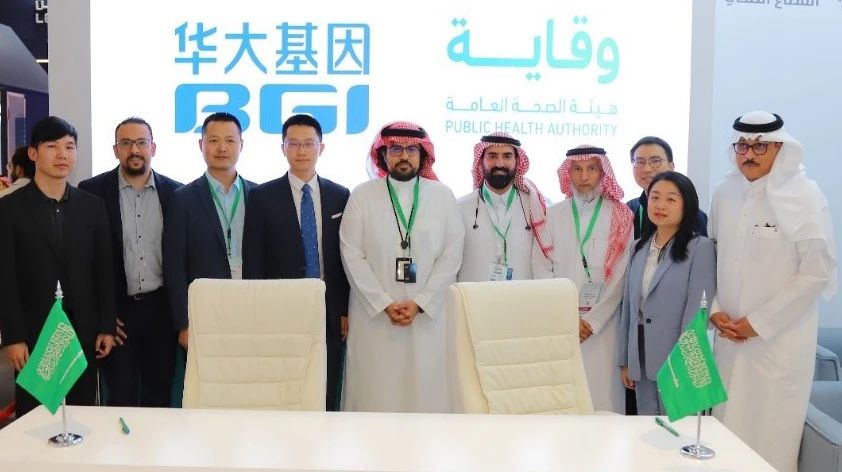
华大基因与沙特公共卫生局签署合作备忘录 点击此处,了解更多
1. 搭建一带一路共建国家在医疗卫生领域的对话交流,消弭知识与技术差距。通过政府主导、企业、高校和研究机构的上下联动,形成多方参与的卫生合作交流模式,推进政策对话和经验分享,加强一带一路共建国家在医疗卫生领域的合作与交流,构建更紧密的国际合作机制。当前,我国已与许多“一带一路”共建国家建立了双边或多边卫生合作关系,搭建了较高层次的合作机制。华大基因积极践行“一带一路”倡议,近日与沙特公共卫生局签署了合作谅解备忘录,双方将疫情期间基于传感染疾病检测的合作进一步扩展至生育健康、肿瘤早筛、科研项目和人才培养等领域的全方面合作,助力沙特的公共卫生事业发展。
second, to improve the life quality of people in bri partner countries. china's advancements in health-related technologies and industries can help bri partner countries in biotechnology, genomics, and precision medicine. efforts should be made to expand cooperation in the prevention and early screening of diseases to achieve low-cost and efficient screening on a massive scale so as to improve the life quality of people in belt and road countries. take colorectal cancer for instance. early screening of the disease could significantly reduce the incidence rate and death rate.
2. 关注生命健康科技,提高一带一路共建国家民众的生命质量。随着我国生命健康领域科技水平进步、模式创新和产业化的不断成熟,可更多关注沿线国家在生物技术、基因组学技术、精准医学的合作。加强疾病预防和早期筛查等智慧医疗领域的合作,实现大群体、低成本、高效率的筛查,将大大提升“一带一路”共建国家民众的生命质量。以结直肠癌为例,通过结直肠癌早期筛查可以显著降低发病率和死亡率。
the technology of early screening of intestinal cancer developed by bgi genomics is able to evaluate a person's risk of contracting intestinal cancer and having precancerous lesions. massive early screening can solve the shortages in colonoscopy resources and capable testing staff. in uruguay, where the incidence rate of rectal cancer is high, 54 percent of patients are diagnosed in terminal stage of the disease. bgi genomics upgraded the huo-yan testing laboratories built during the covid-19 pandemic in uruguay into facilities used for the early screening of intestinal cancer, genetic testing of hereditary tumors, diseases screening of newborns, non-invasive prenatal genetic testing, and the testing for infectious diseases. it has set an example for bolstering the medical testing capacities of developing countries.
华大基因研发的早期肠癌检测技术可评估受检者罹患肠癌及癌前病变的风险,通过大人群的早期检测解决了肠镜医疗资源缺乏和受检者依从性低的问题。在直肠癌高发的拉丁美洲国家乌拉圭,其54%的病例直到晚期才被发现。华大基因将新冠时期的乌拉圭“火眼”气膜实验室,转换应用于肠癌早期检测、遗传性肿瘤基因检测、无创产前基因检测、单基因遗传病携带者筛查、新生儿疾病检测、传感染病检测等领域。对于提升发展中国家建设精准医学检测能力,具有重要的参考意义。
third, to enhance the cultivation and training of medical workers in belt and road countries. china has helped countries participating in the bri train tens of thousands of health and medical professionals relying on mechanisms and platforms such as the belt and road health professionals development alliance, the belt and road hospital cooperation alliance, the belt and road health policy research network, and the china-asean human resources training program of the health silk road. china has established pairing-up cooperation with 46 hospitals in 41 countries and built 25 key clinical specialties centers. in addition, chinese medical services providers have proactively carried out global cooperation, and helped cultivate medical professionals in other countries while improving local healthcare capacities.
3. 加强一带一路共建国家在医疗卫生领域的人才教育和培训。中国国家卫生健康委通过建立“一带一路”医学人才培养联盟、医院合作联盟、卫生政策研究网络等,开展中国—东盟“健康丝绸之路”人才培养计划等项目,为发展中国家培养卫生专业技术人员近10万人次,与41个国家的46所医院建立对口合作,共建25个临床重点专科中心。此外,我国医疗集团积极“走出去”,开展国际化合作,改善医疗水平的同时,也带动了当地在卫生健康领域人才的储备。
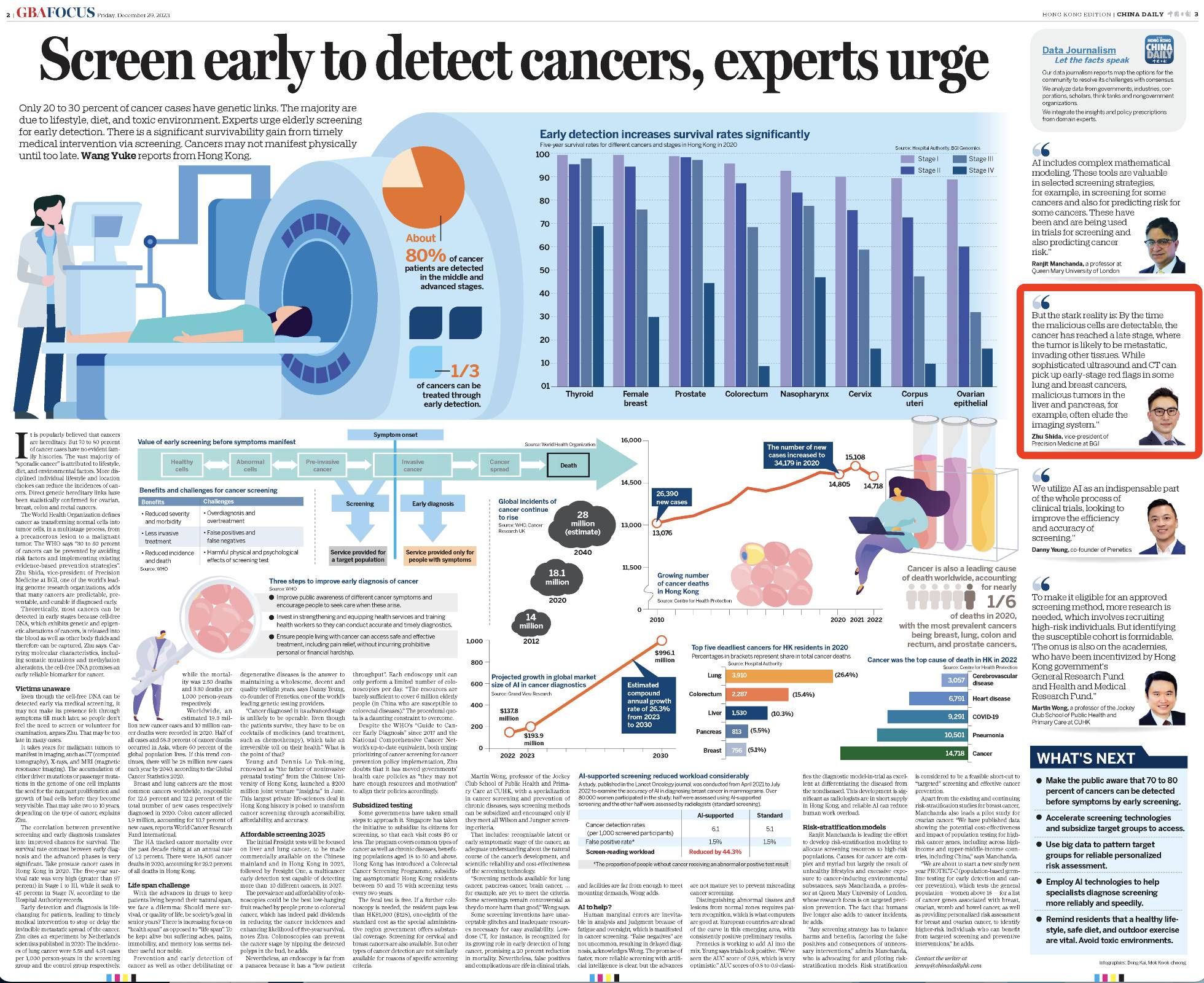
华大基因与塞尔维亚卫生部签订合作备忘录 点击此处,了解更多
fourth, to cooperate with belt and road countries in medical aid and disease treatment. during the covid-19 pandemic, accurate virus testing proved to be critical for the effectiveness of prevention and control efforts. when the virus raged, bgi genomics sent testing equipment to serbia, saudi arabia, thailand and other countries, and now the virulence of the pandemic has waned, we have assisted these countries in building accurate testing capacities, making positive contributions to improving the health of local people.
4.合作开展一带一路共建国家医疗援助与疾病救治。在过去的这场新冠疫情,对全球公共卫生应对能力提出巨大考验,新冠病毒的精准检测成为疫情防控的关键,华大基因驰援塞尔维亚、沙特阿拉伯、泰国等多个国家,疫情结束后也继续助力当地建立精准医学检测能力,持续为各个国家和地区的民众健康做出积极贡献。
基因科技助力泰国地贫防控 点击此处,了解更多
as belt and road cooperation enters its second decade, public health - a common concern of people of all countries — also serves as a key bridge that connects hearts and minds. to enhance cooperation in the health sector will bring more development opportunities for belt and road countries and create tangible benefits for their people. this is a concrete action of china to improve global public health.
“一带一路”合作正进入共同发展、深入合作的下一个十年。健康与公共卫生问题是各国政府和人民共同关注的问题,也是推进民心相通的重要桥梁。加强在健康、卫生领域的合作,将为共建国家带来更多的发展机遇,为相关国家人民带来实实在在的好处,这不仅是中国为推动全球卫生健康事业贡献的实际行动,也是践行“全球发展倡议”以人民为中心的坚定承诺。
(,查看中国日报英文原报道)
推荐阅读
